University of Alberta - Bressler Group
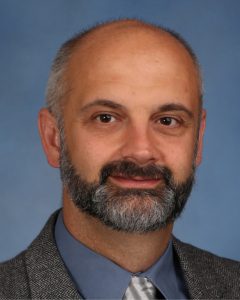
Dr. David Bressler, Principal Investigator
Dr. David Bressler is appointed with the Faculty of Agricultural, Life & Environmental Sciences where he is a Full Professor. Dr. Bressler earned his Ph.D. in Microbiology and Cell Biotechnology from the University of Alberta. Following his studies, Dr. Bressler held a two-year Research Manager position, under Dr. Murray Gray. The position, which included the instruction of two senior courses per year in Chemical and Materials Engineering (University of Alberta), also included an office and weekly participation at Syncrude Research.
Dr. Bressler’s general area of research is the industrial application of chemical, thermal, and biological systems for the catalytic conversion of conventional agricultural products to platform chemicals, fuels, and value-added commodities. The recognition of novel mechanisms and the optimization of catalytic biochemical pathways are of special interest. His research program is unique in that it utilizes a multidisciplinary approach combining industrial microbiology, biotechnology, and analytical chemistry with previous experience in petrochemical conversions and upgrading in conjunction with scale-up and engineering. Much of the biological work involves production, modification, purification, and design of biocatalytic systems.
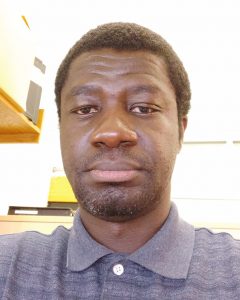
Dr. Justice Asomaning
Dr. Justice Asomaning is the Program Manager overseeing the Bressler lab’s thermochemical conversion research initiatives. He obtained his PhD in Bioresource and Food Engineering under the supervision of Dr. Bressler in 2014 with research focusing on the lipid to hydrocarbons. He was one of the pioneering members of the team working on understanding the fundamental chemistries of the technology. Prior to re-joining the Bressler group as a Program Manager, he worked with the Alberta Government as a policy analyst at the Alberta Climate Change office in roles that involved working on the Bioenergy Producer Program, Carbon Offsets and clean fuel standard. Justice also has 4 years of Postdoctoral research experience, two of which were as Mitacs Accelerate Industrial postdoc with Forge Hydrocarbons Inc. He holds Master of Science degrees from the Ghent University and Catholic University of Leuven in Belgium.
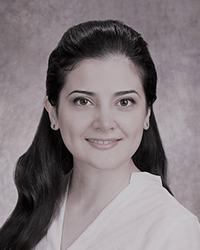
Dr. Fatemeh Bakhtiari Ziabari
Dr. Bakhtiari is a postdoctoral fellow in the Biorefining Conversions and Fermentation Laboratory at University of Alberta, working on the Biojet initiative.
She received her PhD in Chemical Engineering from the University of Alberta. During her PhD she has worked on developing process strategies to enhance the productivity of microbial bioprocesses aimed at reducing the environmental footprint of various industries, for which she received the Westmoreland Coals Company Graduate Scholarship in Environmental Engineering. She obtained a master’s degree in Polymer Engineering and a bachelor’s degree in Chemical Engineering from Sharif University of Technology, Iran.
Her background in research is quite interdisciplinary as she has the experience of working on projects in the fields of microbial bioconversion, development of process strategies, and membrane fabrication for gas separation.
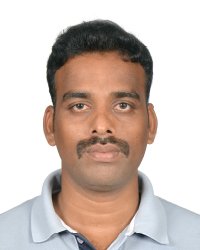
Dr. Ramesh Arumugam
Dr. Ramesh Arumugam received his Doctoral degree (Ph. D.) in the Department of Chemistry at Anna University, Chennai- 600 025, Tamil Nadu, India. Currently, he is working as a Post-Doctoral Research Fellow in the Department of Agricultural, Food and Nutritional Science (AFNS), at the University of Alberta on the Biojet Initiative since March 2021.
He has published a number of peer-reviewed publications (including Renewable Energy, Fuel, ACS Energy and Fuel, Journal of Cleaner Production, Journal of Hazardous Materials and International Journal of Hydrogen Energy) for a total of 17 peer-reviewed publications, with 162 citations since 2019, h-index 8, i10-index 7 and possesses a comprehensive knowledge in catalysis for biofuel productions for the development of advanced technology for renewable energy production. His research work includes synthesis and characterization of novel mesoporous materials supported Ni-Mo catalysts for biomass up-gradation using hydrotreating process.

Andres Merino Restrepo
Andres is a Biological Engineer (2016) and holds a M.Sc. in Biotechnology (2018) from the Universidad Nacional de Colombia – Sede Medellín. In 2017, he developed a research internship at the Universidade de Santiago de Compostela (Spain) in the Group of Environmental Biotechnology. He has developed research work for more than seven years about physicochemical and biological processes, particularly in the adsorption of pollutants onto lignocellulosic materials and solid-state fermentation for synthetic dye degradation with fungal enzymes.
In recent years, there has been a concerted global effort to develop innovative technologies that can reduce greenhouse gas emissions and help mitigate the effects of climate change. Besides, the aviation industry faces some challenges to meet the carbon reduction goals, being the development of sustainable aviation fuel one key factor. Thus, the primary objective of this research is to advance the Lipid-to-Hydrocarbon (LTH) technology that was developed and patented by Dr. David Bressler.
Andres’ research aimed at developing processes to remove contaminants from feed and crude products. Currently, his project focuses on the catalytic isomerization of renewable hydrocarbons to produce biojet fuel with better cold-flow properties. These enhancements will drastically improve process economics, increase the probability of commercial success and bring true benefits to the Canadian and world sustainable fuels and agricultural sectors by providing opportunities for biorefining conversions of agricultural biomass to sustainable aviation fuel, platform chemicals, and solvents.

Bingxin Hai
Bingxin Hai obtained her bachelor’s degree in Honors in Food Science at the University of Alberta. Throughout her undergraduate degree, she has implemented a one-year independent research project in the development of a protein-stabilized hempseed oil emulsion and the systematic investigation into its oxidative stability. In addition, she has completed two consecutive internships in the food industry as a Quality Assurance and R&D Technician.
After graduation, her interest in alternative energy has inspired her to take a closer look into the aviation industry. Coming from Asia, she understands the importance of travel and connecting communities. However, the aviation industry is one of the top ten greenhouse gas emitters. Bingxin wants to contribute to the movement for a global low-carbon based economy. Thus, she is currently pursuing her research on biojet fuel conversion pathways in Dr. Bressler’s lab.
Dr. Bressler’s group has recently developed and patented a novel process where short-chain alkenes are introduced to the Lipid-to-Hydrocarbon (LTH) reactors. This supplementation substantially increases the amounts of branched hydrocarbons necessary for aviation fuels to confer desirable properties such as a reduced freezing point. Bingxin’s research focuses on upgrading this process by investigating into the parameters and conditions involved in the addition of alkenes to improve cold flow properties, using a range of model lipid compounds, waste oils and fats, and low-grade crop oils as feedstocks. This research aims to enhance the viability and competitiveness of biojet fuels by improving process economics and overall performance.

Bernardo Araujo Souto
Bernardo obtained his bachelor’s degree in Chemical Engineering at the Federal University of Itajuba, Brazil. During this time, he had been working as an undergraduate researcher in organic synthesis, focused on microwave approach to obtain possible bioactive compounds. Bernardo worked as an intern at the Brazilian Center for Research in Energy and Materials, when he studied the synthesis of bioactive compounds for heart disease. At the end of his undergraduate, he participated in the Mitacs internship when he joined Dr. Bressler’s lab to work on preliminary studies on microwave heating for the Lipid-to Hydrocarbon (LTH) project.
Nowadays, he is pursuing his master’s degree at Dr. Bressler’s lab, working on the bio-jet fuel project. With the increasing demand for air transportation, the investigation of biofuel production for aviation is necessary to develop a sustainable fuel. Previous work at the lab showed the application of short alkene gases enhanced the branched hydrocarbons yield, an essential fuel fraction that improves its freezing point, which is a desirable property for the jet fuel. In this way, Bernardo’s research is focused on optimizing processes to improve branching and in effect improve cold flow properties to meet aviation industry standards, using model lipid compounds and the real feedstock. The study will focus on understating how the structural variability may affect the properties of the bio-jet fuel.

Dr. Mahfuzul Hoque (Past Member)
Dr. Mahfuzul Hoque has joined the team of Bressler’s lab as a Post Doctoral Fellow (PDF) under the Alberta Bio-jet Initiative (ABI) project in November 2019. His major focus will be to improve the quality of the bio-jet fuels via Lipid to Hydrocarbon (LTH) technology. In that endeavor, he is going to work with reactive gas or gas mixtures to enhance the branching of the hydrocarbons to meet the stringent requirements of the bio-jet fuels.
Prior to that he worked as a PDF at the Yokohama National University, Japan and received his Ph. D. degree from the same institution under the supervision of Dr. Masayoshi Watanabe. During that time, he discovered novel protic ionic liquids and their derived electroactive materials for energy conversion devices, such as fuel cells.
Overall, he has an interdisciplinary background and has acquired training in the synthesis of Nanomaterials, Carbon Materials, and Polymers including their characterization by a variety of analytical instruments.
University of Alberta - Economics Group
Within the biojet project, the economics group is comprised of applied economists and graduate students from the University of Alberta’s Department of Resource Economics and Environmental Sociology and the Department of Renewable Resources. The economics group has experience developing biofuel feedstock supply models focusing on economic dimensions and policy analyses.
Whether and how a biojet industry emerges will largely depend on market conditions and government policies that influence the production and consumption of aviation fuels. Therefore, the overarching question steering the economics group is: How will market conditions and government policies affect the emergence and development of the biojet industry? Such information could inform private investments and government policies seeking to promote the development of a biojet industry.
There is substantial uncertainty regarding the economic viability of biojet. For example, one key area is concerning feedstock supply. How to ensure a sufficient and sustainable supply of feedstock to biorefineries, considering variation and uncertainty, is a crucial element of business decisions. The economics group will develop models that analyze supplies of biojet feedstocks – within the context of varying spatial characteristics of feedstock resources and markets – and how these supplies could change in response to stochastic future prices and changes in government policies.
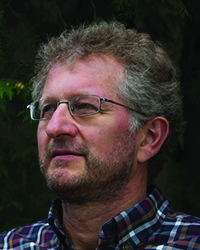
Dr. Marty Luckert
Marty Luckert is a Professor in the Department of Resource Economics and Environmental Sociology at the University of Alberta. He specializes in forest and natural resource, policy and economics. He has worked domestically and abroad on natural resource management and development issues. His expertise includes forest tenure policy, biofuels, land use change, and livelihoods in developing countries. Marty has served on numerous forest and natural resource policy committees across Canada and internationally.

Dr. Feng Qiu
Feng Qiu is an Associate Professor in the Department of Resource Economics and Environmental Sociology, University of Alberta (UofA). She received her Ph.D. in Economics (minor in Statistics) from North Carolina State University in 2012. Feng’s research interests focus on bioenergy, price and market, land use and food environments. As an applied economist, most of her work uses statistical and econometric analysis to solve practical problems that have significant impacts on policy and business decisions. The projects she has done include assessing the biomass availability and accessibility in Canadian Prairies, investigating market integration among agricultural, forest, traditional fuel and bioenergy markets, analyzing price risk transmission between agricultural and energy sectors and many more. Feng has published a wide range of articles in high-quality journals such as Ecological Economics, Resource and Energy Economics, and Food Policy. Feng teaches Land Use Economics and Financial Management for Resource Industries courses at UofA.
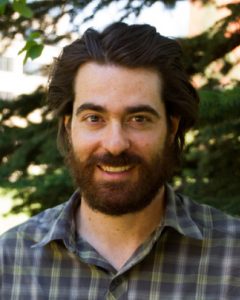
Dr. Jay Anderson
Jay Anderson uses economic tools to analyze policies that relate to natural resources and the environment. Jay specializes in environmental policy, forest and natural resource economics, cost/benefit analysis, and carbon markets. His recent work has included reports on topics such as carbon offsets, cropland conversion, biofuel technologies, and forest carbon protocols.
Jay has been working in applied economics since 2002, and currently works as a Research Associate in the Department of Resource Economics and Environmental Sociology at the University of Alberta. Prior to his graduate studies, Jay worked as a field forester for six years. During his graduate studies, he was awarded a doctoral fellowship from the Social Sciences and Humanities Research Council of Canada. Jay is a Registered Professional Forester (RPF), and is a member of the College of Alberta Professional Foresters, and the Canadian Institute of Forestry. He holds a PhD in Forest Economics and a BSc in Forestry, both from the University of Alberta.
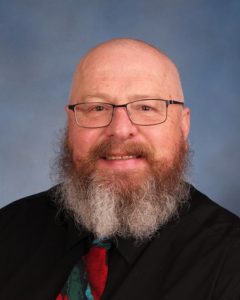
Dr. Glen Armstrong
Glen Armstrong has a background in forestry and economics which he applies to complex modeling scenarios. He has expertise in forest management, operations research, and decision methods. Glen has worked in natural resource management for over 30 years, with roles in government, academic research, and consultation. Currently, he is an Associate Professor in the Department of Renewable Resources at the University of Alberta. Glen has also worked as a Timber Supply Analyst for Alberta Forest Service, a Forest Economist for Forestry Canada, and a Senior Analyst for Simons Reid Collins. He holds a BSc in Forestry, an MSc in Forest Economics, and a PhD in Forest Biology and Management, all from the University of Alberta.
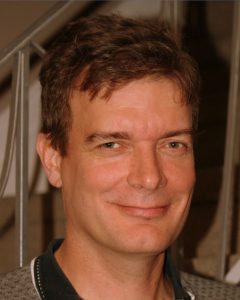
Dr. Grant Hauer
Grant Hauer has a wealth of experience in resource and environmental economics, such as the modelling of habitat offsets, endangered species management, oil, gas, and forest land valuation, as well as economics of biofuels and land use change. He has also done extensive work on the economics of climate change adaptation and carbon sequestration. Grant works as a Research Associate in the Department of Resource Economics and Environmental Sociology at the University of Alberta. He holds an MSc in Forest Management/Operations Research and a PhD in Natural Resource and Environmental Economics, both from the University of Minnesota.

Wenbei Zhang
Wenbei Zhang is pursuing a masters degree in the Department of Resource Economics and Environmental Sociology at the University of Alberta. Her research interests are natural resource economics and environmental policy evaluation. Wenbai is conducting time series analysis in the context of biofuels for her graduation thesis under the supervision of Professors Marty Luckert and Feng Qiu.
University of Alberta - Engineering Group
The large consumption of jet fuel accounts for around 2% of the global CO2 emissions every year. The International Air Transport Association (IATA) has recognized bio-jet fuel as the most promising strategy to reduce the aviation industry's greenhouse gas emissions. The properties of jet fuel are very well defined and have limited allowed variability. Bio derived jet fuel must be certified to these properties. The purpose of the research is to build in-house capabilities for biojet fuel testing, focusing on the sooting intensity of biojet combustion.
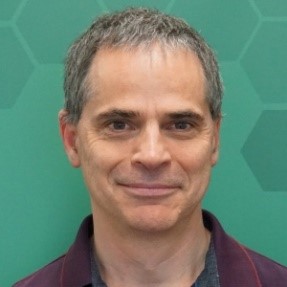
Prof. Charles Robert (Bob) Koch
Prof. Koch is an expert in combustion control, automation, and sensing. He is a professor of mechanical engineering at the University of Alberta.

Edward Guo
Edward Guo is a 4th-year Mechanical Engineering Student at the University of Alberta. He has worked with Bob Koch's group for three work terms and was tasked with the detailed design and procurement for the biojet setup.

Prof. Vahid Hosseini (Past Member)
Prof. Hosseini is an associate professor of mechanical engineering at Sharif University, an adjunct professor of mechanical engineering at the University of Alberta and a research scientist in the biojet emission study. His primary expertise is emission inventories, combustion-generated air
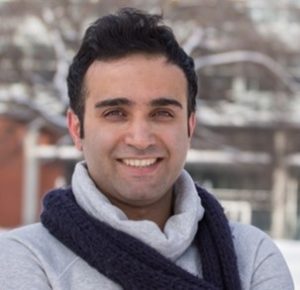
Dr. Masoud Aliramezani (Past Member)
Dr. Masoud Aliramezani is a former postdoctoral fellow of mechanical engineering at the University of Alberta. He is an expert in modeling, control, and emission measurement of combustion systems and engineering applications of artificial intelligence.
CanmetENERGY Devon
CanmetENERGY in Devon, one of the energy research labs under Natural Resources Canada (NRCan), is recognized as a national and international leader in clean energy innovation and technology development, with a focus on cleaner fuels and related environmental technologies from conventional and unconventional natural resources. We have made significant achievements in advancing biocrude upgrading and co-processing biocrude with petroleum in refineries by applying our years of experience in fundamental science, advanced hydrocarbon chemistry, engineering practice, by using our world-class analytical instruments and pilot plant facilities. Our research scientists and engineers, in collaboration with industry and academia, are developing cutting-edge biocrude upgrading and co-processing technologies for producing cleaner transportation fuels and reducing GHG emissions to benefit future generations of Canadians and our environment.
In 2019, CanmetENERGY Devon joined the effort led by the University of Alberta to develop technologies for producing biojet fuels from one of the product streams of the Lipid-to-Hydrocarbon (LTH) process. This effort led to a $7.4M R&D project “Alberta Biojet Initiative (ABI): Upgrading of University of Alberta's LTH Technology to Biojet”, with funding contributions from Alberta Innovates, Natural Resources Canada, Western Economic Diversification, University of Alberta, Future Energy Systems, Forge Hydrocarbons, and Edmonton International Airport.
One practical approach to upgrading the jet fuel stream of the LTH product to produce on-spec biojet is to use catalytic hydroisomerization. As an established refining process, catalytic hydroisomerization is used to transform straight-chain paraffins into branched paraffins or isoparaffins to improve octane number for gasoline production and enhance cold flow properties for diesel production. CanmetENERGY Devon is seeking to adapt catalytic hydroisomerization to improve the cold flow properties of the LTH products for biojet production. With our strong expertise and capabilities in catalyst development we develop and optimize novel hydroisomerization catalysts, and evaluate their activities and performance with our unique bench and pilot plant facilities, ranging from autoclaves and continuous flow fixed bed reactor units of different sizes and scales.
The CanmetENERGY’s team is led by Dr. Jinwen Chen, Director of Downstream and Renewables rogram. He is internationally recognized expert with over 30 years' R&D experience in bitumen upgrading and petroleum refining, biocrude co-processing, process modeling and simulation, and life cycle analysis on GHG emissions. Key team members include Dr. Anton Alvarez-Majmutov, Ajae Hall, Dr. Rafal Gieleciak, Dr. Prachee Misra, Nora Kirkpatrick, and Stephen Kieser. The CanmetENERGY analytical service team and technical service team provide all the required support for sample analysis and pilot plant operations.
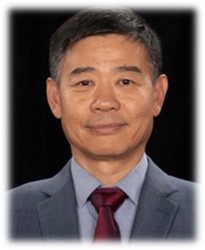
Dr. Jinwen Chen
Jinwen Chen was appointed Director of Downstream and Renewables Program of CanmetENERGY in Devon, Strategic Petroleum Policy and Investment Office, at Natural Resources Canada (NRCan) in June 2015. He is responsible for the management and direction of the Downstream and Renewables program at NRCan’s CanmetENERGY Devon research center. Research under the program includes oil sands bitumen upgrading/partial upgrading and petroleum refining, advanced hydrocarbon chemistry and characterization, process modeling, simulation and life cycle assessment of GHG emissions, co-processing biocrudes to produce biofuels, and bitumen beyond combustion.
Prior to his appointment, Dr. Chen was a senior research scientist and team leader at CanmetENERGY in Devon. His research covered a wide range of subjects, including bitumen and heavy upgrading, petroleum refining, catalyst development and reaction kinetics, process modeling, simulation and optimization, multiphase reactor design and application, phase equilibrium, etc. Before joining CanmetENERGY in Devon in 1999, Dr. Chen worked in University of Calgary, Washington University in St. Louis, and Tianjin University as a research scientist, research associate, and associate professor, respectively.
Dr. Chen has a Ph.D. in Chemical Engineering from Tianjin University. He is a registered professional engineer (P. Eng.) with APEGA and a fellow of the Canadian Academy of Engineering (FCAE).
Email: jinwen.chen@canada.ca
Phone: (780) 987-8763

Ajae Hall
Ajae graduated from the University of Waterloo with a Bachelors of Chemistry in 2008. He has worked for NRCan ever since, starting his career as an analytical chemist for CanmetENERGY Ottawa where he tested solid and liquid fuels. As Manager of Standard Analytical at CanmetENERGY Devon, he is responsible for the operations of the lab, advising clients on appropriate testing protocols, and developing new methods, including for standards committees such as ASTM and CGSB.
Email: Ajae.Hall@canada.ca
Phone: (780) 987-8750
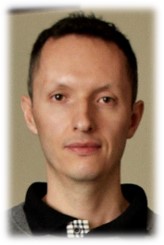
Dr. Anton Alvarez-Majmutov
Dr. Alvarez-Majmutov is a Research Scientist and Lead of the Renewables, Hydroprocessing and Modeling R&D team at CanmetENERGY Devon. He has over 15 years' experience in petroleum refining and heavy oil upgrading R&D, with core expertise in hydroprocessing technologies, refinery process modeling and simulation, reactor engineering, and biocrude co-processing. His role in this project is to oversee biojet upgrading technology development activities at CanmetENERGY Devon.
Email: anton.alvarez-majmutov@canada.ca
Phone: (780) 987-8348

Dr. Rafal Gieleciak
Dr. Rafal Gieleciak received his master and Ph.D. degrees from University of Silesia, Poland. Before joining CanmetENERGY, he worked in University of Silesia as a research associate. He joined Natural Resources Canada (CanmetENERGY-Devon lab) in 2007 as a research scientist. Currently, Dr. Gieleciak is team lead of Advanced Chemistry and Characterization group at CanmetENERGY in Devon. Dr. Gieleciak has more than 10 years’ experience directly related to both ability to determine detailed molecular composition of oil sand and biomass derived products and ability to use these data to accurately model and process oil sands and petroleum feedstocks and their products.
Since 2016, Dr. Gieleciak is an associate editor for the Journal of Sustainable Mining. He is also a member of the editorial board and review panel of several international journals. Active member of US led Fuels for Advanced Combustion Engine (FACE) group participating in the recommendation of sets of test fuels well suited for advanced combustion research. Author and co-author of 39 peer review publications, 30 client and technical reports, and numerous presentations.
Contact: rafal.gieleciak@canada.ca
Phone: (780) 987-8349

Dr. Prachee Misra
Dr. Prachee Misra is a Research Scientist at CanmetENERGY Devon. Her research interests include hydroprocessing, heterogeneous catalysis, adsorbents, and renewable fuels. Dr. Misra earned a Ph.D. in Chemical Engineering from the University of Saskatchewan in 2017 with specialization in processing and upgrading of bitumen derived heavy gas oil. After graduating, she worked as a Postdoctoral Fellow at the University of Saskatchewan. Dr. Misra continued her postdoctoral training at Enerkem by working on value-added chemicals and biofuels from municipal solid waste before joining CanmetENERGY in 2019.
Email: prachee.misra@canada.ca
Phone: (780) 987-8341
Nora Kirkpatrick

Stephen Kieser
Stephen Kieser graduated from the University of Alberta with a Bachelors of Science in Mechanical Engineering in 1998. He joined NRCan in the fall of 1999 working at CanmetENERGY Devon in the pilot plant operations team. His experience began with pilot plant operations and now includes pilot plant design, modifications, construction, and commissioning. He is currently a member of the Technical Services Team employed as Operations Lead Engineer, responsible for overseeing all pilot operations.
Email: stephen.kieser@canada.ca
Phone: (780) 987-8658